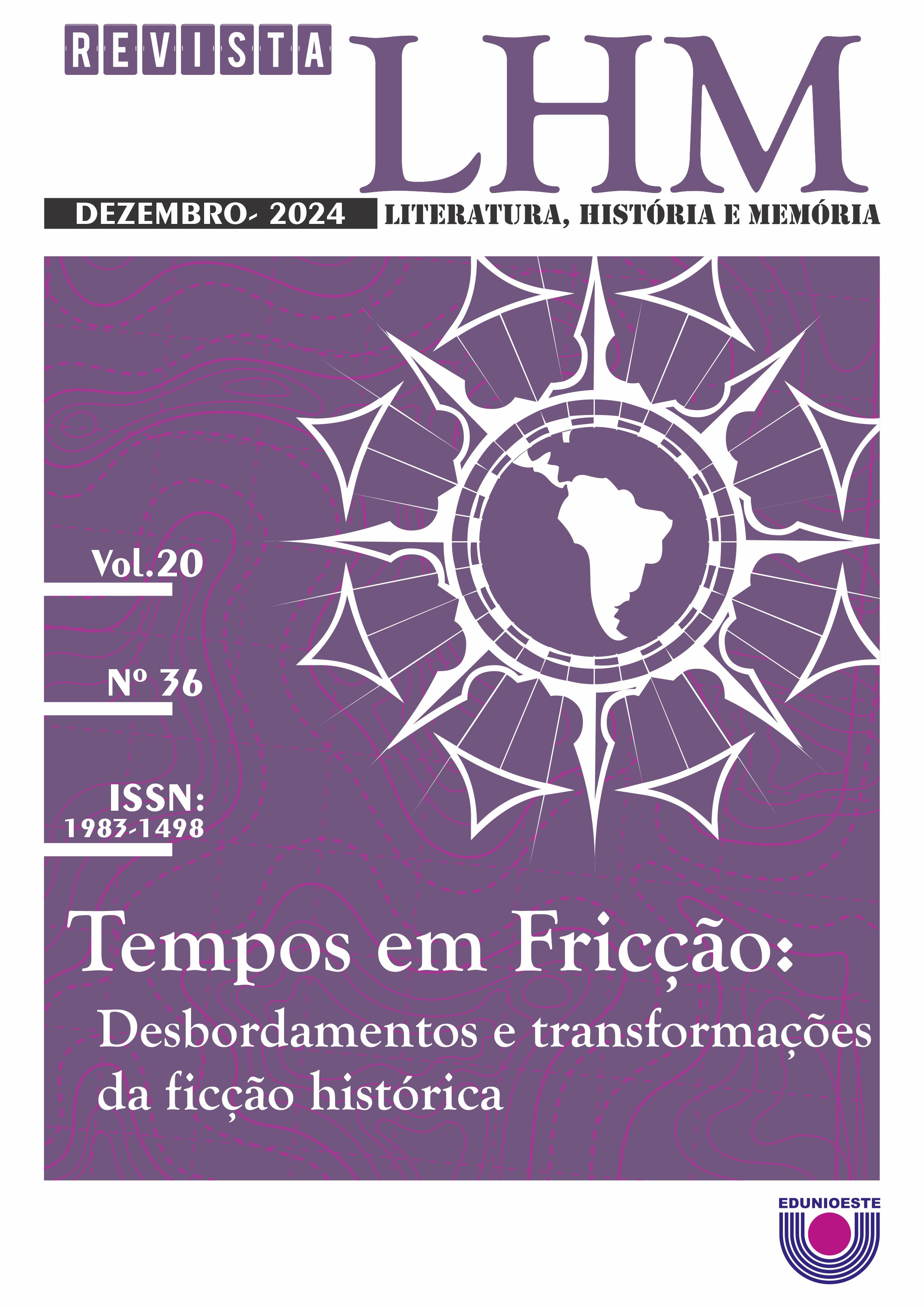Clandestine memories and the dungeon trauma. La casa de los Conejos, by Laura Alcoba
a testimony about the argentine military dictatorship
DOI:
https://doi.org/10.48075/rlhm.v20i36.34017Abstract
This article seeks, through reports of memory and trauma, to analyze how the experiences of subjects who witnessed the atrocities of the Military Dictatorship in Argentina occurred. We also seek to rescue the memories of the dungeon that surround the erasure of the subjects who were victims of the military coup that resulted in the disappearance of more than thirty thousand people - many of whom remain missing, briefly discussing the movements that resisted and remain active until this chapter is closed by justice. In this sense, we deal with the themes in question based on the analysis of the work La casa de los conejos (2008), by Laura Alcoba, taking into account the testimony of her childhood memories. Inserted in the literary strand called literatura de los hijos – works, fictional or not, that address the Argentine dictatorial period from the point of view of those who, not directly involved with the facts – or experiencing them second-hand, due to their proximity to their families and militant friends - are deeply affected by circumstances, often remaining silent; often witnessing what they experienced: their pain. To do so, we draw on the assumptions of scholars dedicated to the topic, such as Walter Benjamin (2006, 2010), Aleida Assmann (2011), Eurídice Figueiredo (2017); Jeanne Marie Gagnebin (2006), Maria Rita Kehl (2010), Pierre Nora (1993) and Roland Barthes (2011).
Downloads
Published
How to Cite
Issue
Section
License

This work is licensed under a Creative Commons Attribution-NonCommercial-ShareAlike 4.0 International License.
Aviso de Direito Autoral Creative Commons
Política para Periódicos de Acesso Livre
Autores que publicam nesta revista concordam com os seguintes termos:
1. Autores mantém os direitos autorais e concedem à revista o direito de primeira publicação, com o trabalho simultaneamente licenciado sob a Licença Creative Commons Attribution que permite o compartilhamento do trabalho com reconhecimento da autoria e publicação inicial nesta revista.2. Autores têm autorização para assumir contratos adicionais separadamente, para distribuição não-exclusiva da versão do trabalho publicada nesta revista (ex.: publicar em repositório institucional ou como capítulo de livro), com reconhecimento de autoria e publicação inicial nesta revista.
3. Autores têm permissão e são estimulados a publicar e distribuir seu trabalho online (ex.: em repositórios institucionais ou na sua página pessoal) a qualquer ponto antes ou durante o processo editorial, já que isso pode gerar alterações produtivas, bem como aumentar o impacto e a citação do trabalho publicado (Veja O Efeito do Acesso Livre).
Licença Creative Commons
Esta obra está licenciada com uma Licença Creative Commons Atribuição-NãoComercial-CompartilhaIgual 4.0 Internacional, o que permite compartilhar, copiar, distribuir, exibir, reproduzir, a totalidade ou partes desde que não tenha objetivo comercial e sejam citados os autores e a fonte.


